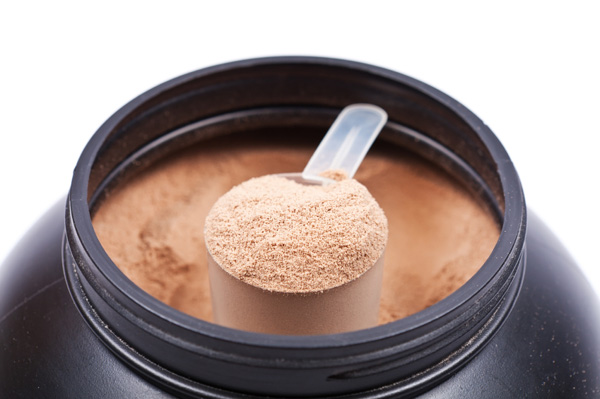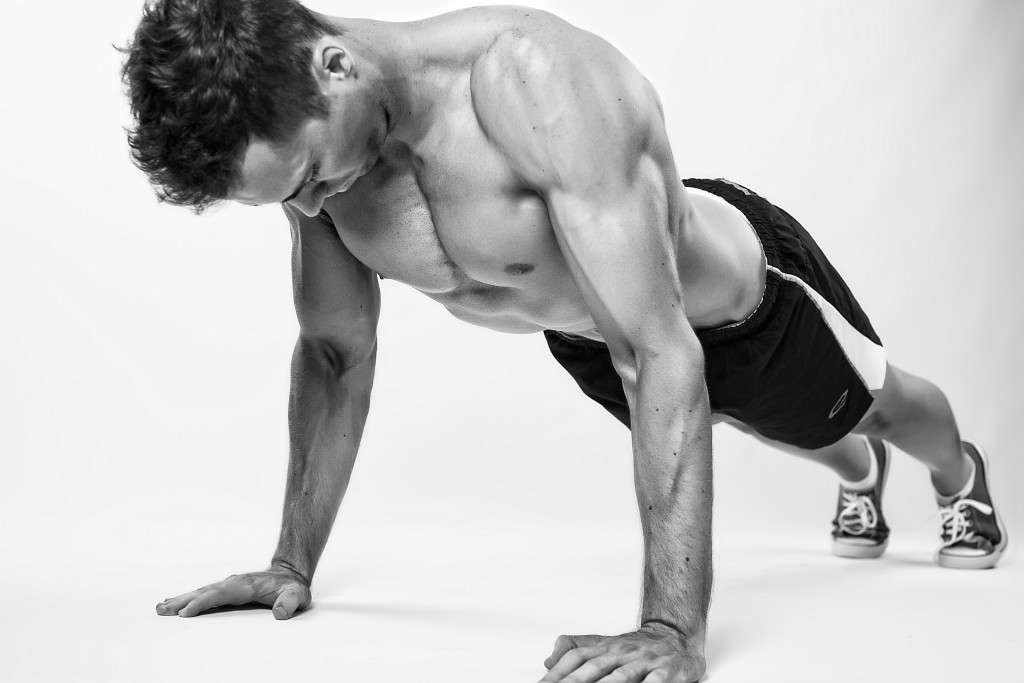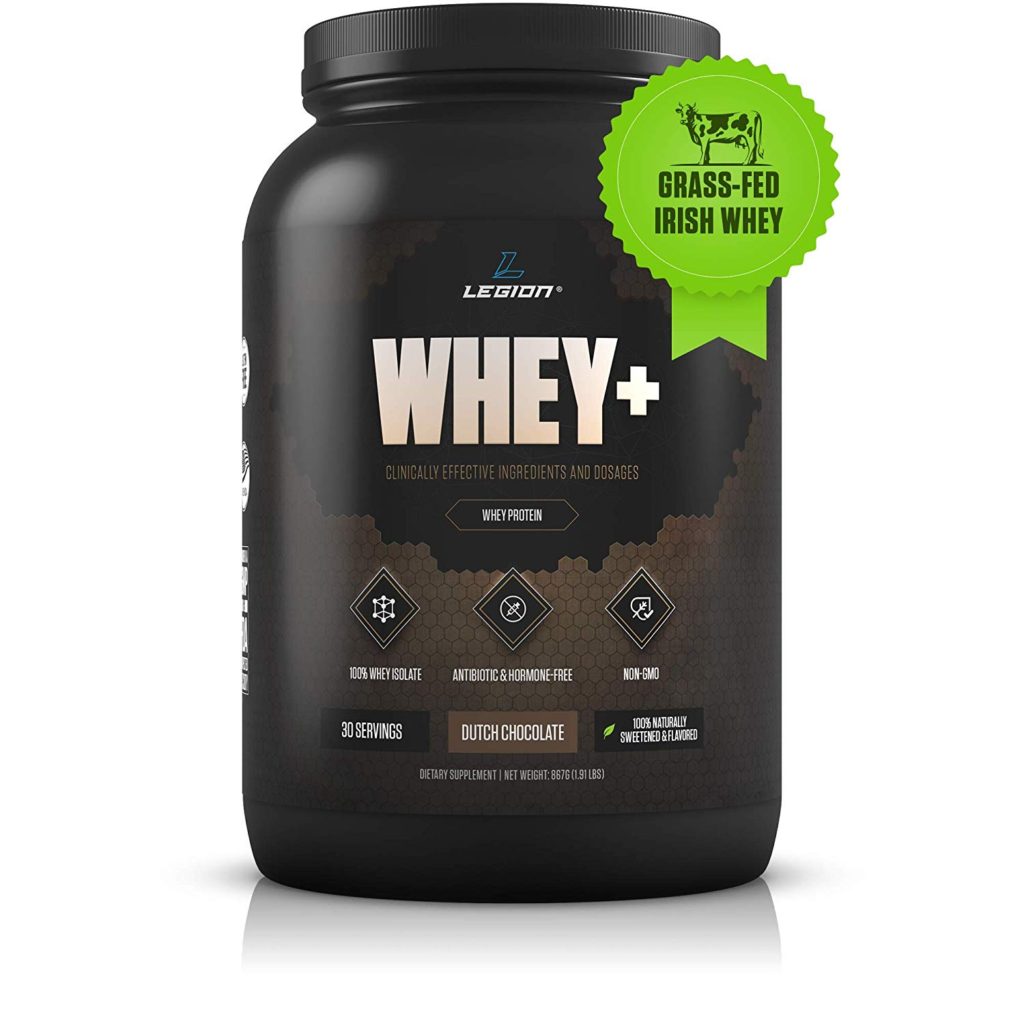Does Protein Powder Actually Work? Here's What You Need To Know...
If you walk into any supplement store or talk to a fellow gym goer about building muscle and bulking up one of the first topics of conversation will be protein powder, guaranteed.
Does Protein Powder Work?
Is it surrounded by hype or do these guys that are shovelling back 5 scoops a day know something that we don't?
In short my answer to the question "Does protein powder work?" is both a yes and no, here's why:
Yes!
Protein powder assists in hitting your macronutrient goals
At the end of the day in terms of your body composition i.e. the way you look (not to be confused with how you feel or your health) a calorie is a calorie and a gram of protein is a gram of protein.
Your body does not know nor does it care whether this protein source was from whey protein powder, beef mince or any other food you can think of.
Your body will respond the same way to 30 grams of protein from a protein shake as it does from 30 grams of protein that was derived from a chicken breast.
Protein powder is more cost effective than eating food containing protein
Good food is expensive - buying chicken breasts, cuts of steak, turkey breast, lean mince etc. is very expensive, eating takeaway is extremely cheap however won't get us to where we want to be as the macronutrient profile of this kind of food is terrible (low protein, high carbs, high bad fats).
Protein powder on the other hand is quite cheap - in terms of cost per gram you will find that protein powder is more cost affective than whole foods if we're only concerned about protein content.
Supplements are expensive if you're buying into the hype - but a plain, good quality whey protein concentrate that wasn't manufactured and marketed by one of the major players in the sports supplement monopoly won't set you back much at all.
Protein powder is convenient
Getting in your meals can be time consuming and downright inconvenient at times.
Can you eat a steak while you're driving to the office? No. You can down a protein shake with ease though.
Protein powder requires no preparation at all - all you require is the powder itself, a shaker and your choice of beverage (I opt for water however if you're a skinny guy I recommend you mix your protein powder in with full cream milk to get as many calories as possible).
NO
Protein powder does not replace proper food
Protein powder is a supplement. As the name suggests the purpose of a supplement is to be supplementary to an already solid diet (consisting of protein in the form of whole foods).
Under no circumstance should your diet consist only of protein shakes.
Protein powder does not contain nutrients
As mentioned above - protein powder is a supplement, not a food.
Healthy foods are packed full of vitamins and minerals (micronutrients) that your body requires to function - protein powders do not contain these nutrients (such as iron, zinc etc.)
Protein powder often contains artificial colours, flavours and sweeteners
Protein powders do not contain carbohydrates (unless we're talking about mass gainer shakes of course) but the appealing flavour for the powder has to come from somewhere... the majority of these supplement companies are utilizing chemicals and artificial colours for the taste and appearance of their products. The majority of people aren't phased by this however I'm future focused and the health complications and scares that could come to fruition in the future from excessive use of these supplements are not worth it in my eyes.
That said, unflavoured protein powders and naturally sweetened (stevia) protein powders are available on the market, albeit they're the minority.
What Are All These Different Types Of Protein Powder?
Whey
The most common form of supplemental protein, whey makes up 20% of total milk protein.
Whey protein is fast absorbed and relatively cheap.
Casein
Casein is known to be a slow release style protein (and is therefore quite often used between meals or overnight).
Casein makes up 80% of total milk protein.
Soy
There's a lot of hype and controversy and conflicting information surrounding soy protein - I suggest avoiding it.
Blends
The majority of large supplement companies offer 'protein blends' which incorporate whey protein in both concentrate and isolate form, egg protein, casein protein and even occasionally soy protein.
Blends of protein tend to be quite expensive.
The Best Protein Powder To Build Muscle
There is no best protein powder, but here are the guidelines I can give you to follow when buying a protein powder:
Macronutrients
How high is the protein content (in grams and percentage per scoop)
If a scoop is 40 grams and the side of the tub indicates there is only 20 grams of protein per scoop that indicates that this particular protein is only 50% protein and is more than likely topped up with filler ingredients, avoid these dodgy manufacturers.
When selecting a protein I personally ensure it is 90% or greater in its purity and that it contains no more than 2 grams of carbohydrates (and no fat!).
Ingredients
Don't fall for the proprietary matrix ingredient scam. If the tub of protein does not indicate exactly what ingredients are in it I would not even consider buying it.
Excessive amounts of artificial colouring and flavouring ingredients is a turn off in terms of health - if this is of no concern to you feel free to use this protein (provided the ingredients are all listed and it does not contain a miniscule purity percentage).
Price
Here in Australia I pay roughly $20 per kilo of protein powder for the brand I buy.
I have seen protein blends (which contain less protein and more carbs than the whey protein concentrate I buy) sell for $55 per kilo.
Why spend more and get an inferior product? Educate yourself with this knowledge to ensure you don't get ripped off.
Advertising & Hype
The guy you see on the poster at your local supplement shop promoting the latest wiz bang fast acting protein to hit the market does not actually use it and he knows it offers no tangible benefits. These individuals along with the companies producing these products don't care about you - they're happy to sell you a pipe dream and a supposed quick fix for your muscle building problems in exchange for a hefty wad of cash from your pocket... funny that.
Don't believe in the hype or the advertising that is used to push these products - check the labels and do your research.
At the end of the day marketing campaigns won't net you results, macronutrients will.
Here's The Protein I Highly Recommend You Use...
Legion's Whey+ protein is honestly a breath of fresh air, this is literally the clanest and purest form of whey protein you'll find.
Whey+ is 90% protein by weight, so no carbs or fats here! There's no artificial junk and it's made with milk from small irish dairy farms ensuring you get the highest quality whey possible.
No BS.
Pick up a tub of Whey+ in one of many delicious flavors right here.



